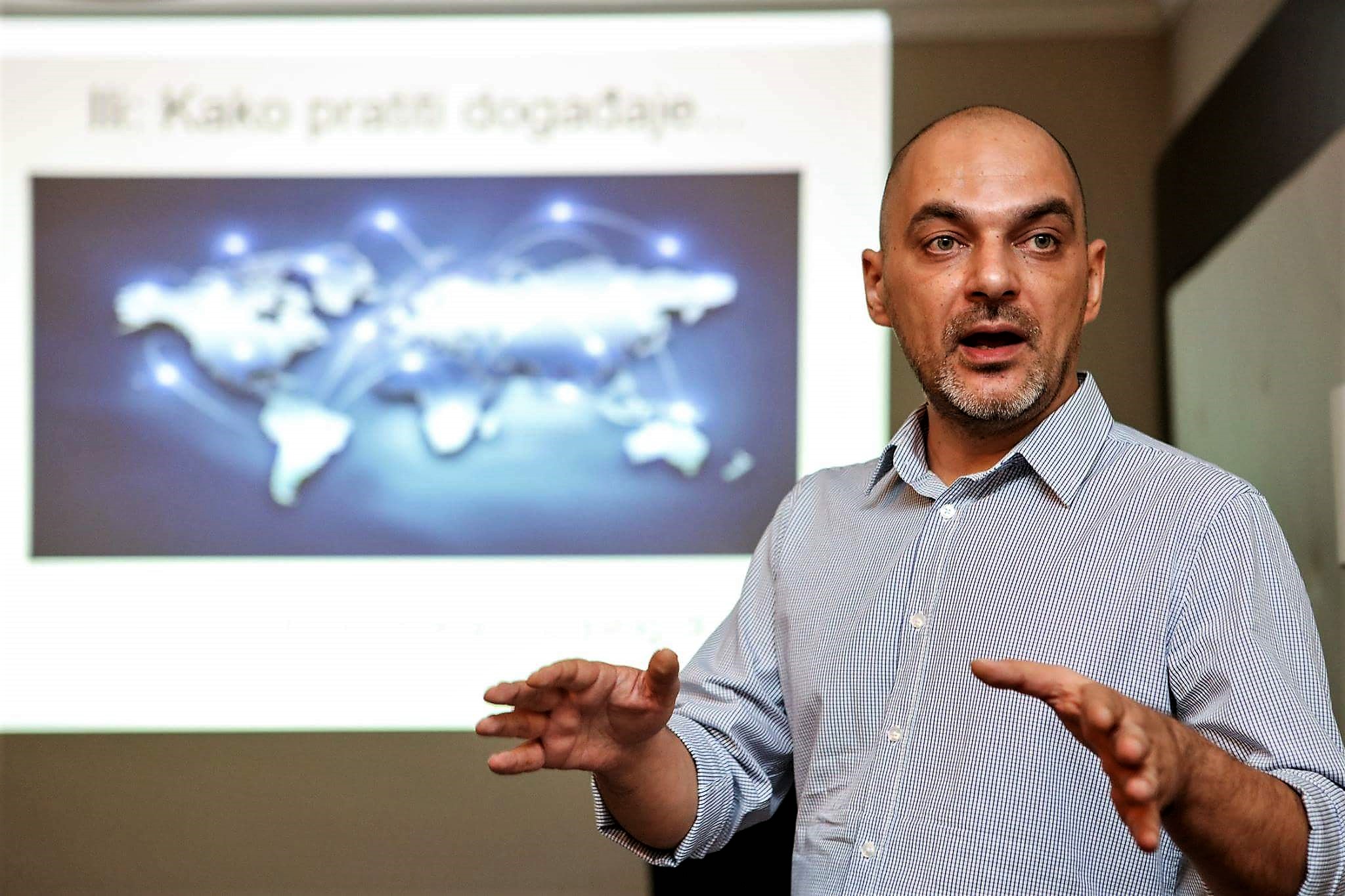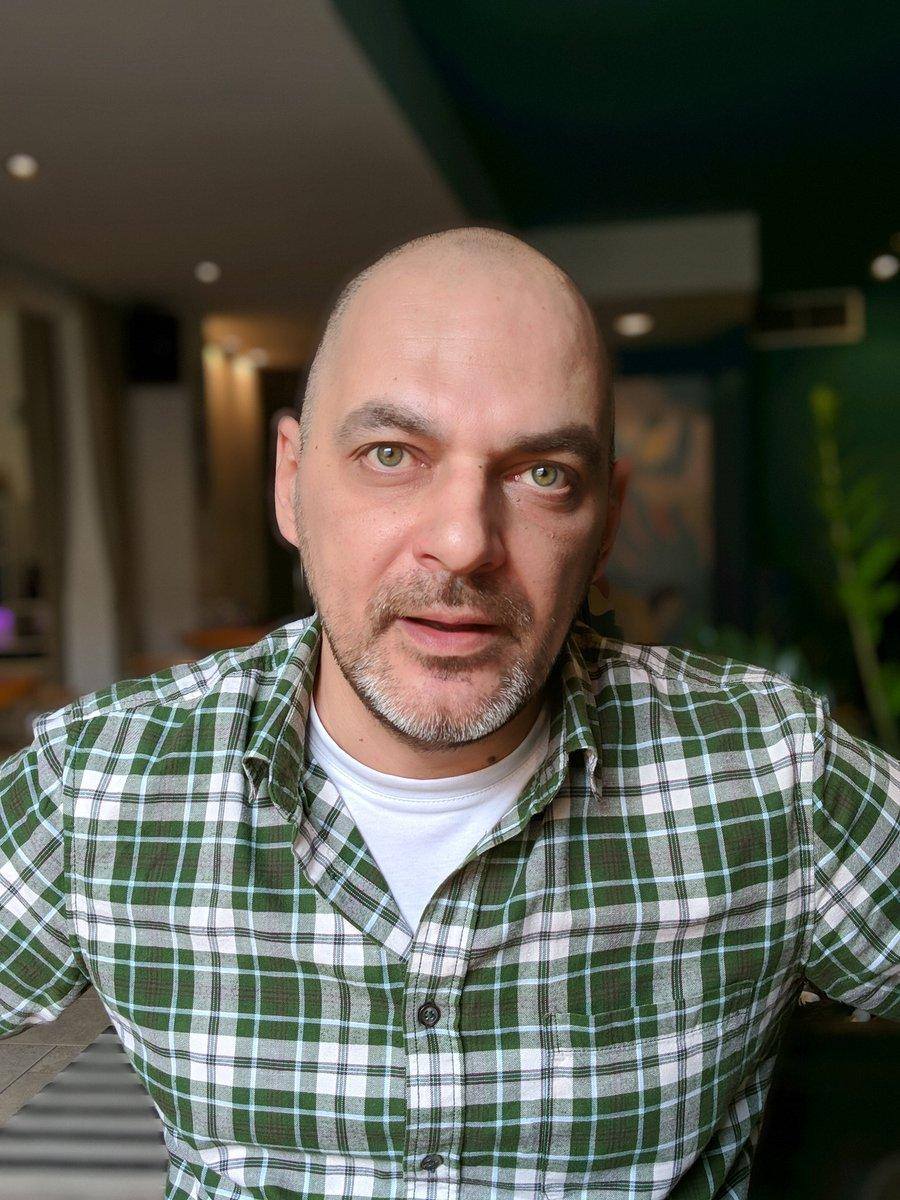No government is happy with being criticized by the media regardless of how aware it is that being criticized is beneficial for democracy

Denis Kolundžija is one of the most critically-inclined journalists in Vojvodina and the flagship of the Cenzolovka website, the favourite of those people who are constantly searching for a lesser pleasant truth in the ocean of very ear-pleasing PR “truths”. We talked with Denis about anything and everything, and particularly, about the current situation in the country and the region.
Do you think there is a pact between the EU and stabilocracy countries, such as Serbia and Montenegro, where constricted workers’ rights, limited freedom of information and inadequatejudicial independence are being tolerated for the sake of keeping these countries on the pro-European path?
— People in the Balkans live in an era where their destinies are determined by pencil pushers from European institutions, who, obviously, always prefer form over matter. If you adopt a new media strategy, you are going to get a big pat on the back and a big plus in the annual report of the European Commission. But has anything essentially changed in the media sphere? Who cares! As long as a box in one of the agendas has been ticked. They know very well why are these changes not happening, and they also know that there are higher interests and more important things than, let’s say, media freedom, inhumane treatment of workers and such. There is stability in the region and just declarative committment of the Balkan states to the „European path“. The fact that we don’t know whether this path will lead us to our goal in the foreseeable future, suits both the Europeans and the current powers to be, each for their reason.
Why is so much pressure being exerted on the media in an attempt to force them to serve uniformed information? Even during Milošević’s time, local media were, for the better part, in opposition, and today, we have media competitions where newly established media outlets, close to the government, get all the funding.
— No government is happy with being criticized by the media regardless of how aware it is that being criticized is beneficial for democracy. In countries where that is still possible and where democracy is still in its infancy, the governments are very quick to deal with such „problems“. For instance, one of the ways to deal with it is to give the media, which mere existence is in jeaopardy, „an offer they cannot refuse“, mainly to make them fit to receive state aid through various competitions and advertising. Those who stay on this „suitable“ course are still fairing well, considering that some media outlets have consented to become a tool for abominable clashes with those who think differently. And a handful of media outlets which are managing to keep their head above the water, are being constantly harassed. What we see as uniformity of information is actually the price that many media outlets think they have to pay, and get paid for.

Radio and Television of Vojvodina (RTV) has lost a lot of its viewers following the management changes in 2016. Up until then, RTV was arguably the best TV station in the country. Are these negative results going to be a wake up call for somebody?
— As a public broadcaster, RTV was not forced to view the drop in the number of viewers through a commercial filter. However, what should be of concern to this TV station, and I see that nobody is particularly concerned there, is a drop in viewer trust. Facing this would require doing something that is rather unimaginable in my view, namely admitting that things have been done wrongly in the last two years, and that everything started with the firing of the station’s programming director and editor. Despite the final court order, RTV still stubbornly refuses the admit the fact that the firing of the programming director in 2016 was against the law.
What do you think about media freedom during Milošević, Djindjic, Koštunica and Tadić’s time and now? When was media freedom the strongest and when the weakest, and who of the aforementioned politicians resembles the current government members in terms of media freedom and their „management“?
— There is no media freedom without safety of journalists. In the last 25 years alone, three journalists were murdered – Dada Vujasinović and Slavko Ćuruvija were killed during Slobodan Milošević’s reign, and Milan Pantić during Zoran Djindjić’s term, who was also killed. The trial for Ćuruvija’s murder has been going on for years, while no-one has been indicted for the murder of the two other journalists. Then there were physical assaults and threats, including death treaths, which are rarely prosecuted and the worst thing is when the importance of all this is being minimized publicly. Even during the time when journalists were not assassinated, and when attacks and threats were not as frequent as in the last few years, the fact that the state has done absolutely nothing to resolve the murders of our colleagues leaves a very bitter taste in one’s mouth. Media freedom does not mean having 2,000 or 10,000 media outlets, or what certain individuals publish about the current or past goverments on a handful of free websites while being exposed to the risk of being physically assaulted or being dragged through the mud by the media close to the government which see media freedom as a complete denounciation from responsibility and non-adherance to journalistic standards and professional ethics.
What awaits us in the Balkans? A series of ethnically demarcated feudatories where anyone can do as they please under the condition that they do not touch the other?
— The Balkan will sorely miss those people who could have done a lot for their respective countries and who are now benefitting Germany, the US or other countries to which they emigrated without looking back. The majority, who will remain here, are unwilling to change and face the recent past and themselves, to whom death is more precious than life, and the past more inspiring than the future. Also, there will be politicians who will continue to profit on the backs of such people, but without the cojones to realize the „wet dreams“ of their electorate.
Global politics is changing rapidly while the tensions between super powers are transforming unpredictably, bringing us back to some sort of a partially multipolar world. What can we expect from the unstable Europe which has no clear direction, the unstable United States, Great Britain that is leaving the EU, and the growing power of China and Russia?
— I do not see that the expansion of populist movements around the world will be halted any time soon. These movements base their power and election success on fear, deception and unscrupulous seduction of masses that are scared of the inevitable tectonic changes in society. Europe will look different, but it will still look tempting – in part, because of the promise that we will once again give you a nice, indicative accession date, and that we are going to be a part of that and such Europe, for the sake of our own children and the neighbours that we miss, and even more because of the systems in which they all live. New wars will not be needed so much because there is one that has been going on for a long time – the war against our own planet – and here, as things are, we are surely losers.
By joining the EU in 2013, Croatia has managed to become the poorest country in the Union in just five years. Does joining the EU mean anything if a country is not managed properly?
— The real issue here is who felt the consequences of the poor management – all those people who emigrated, i.e. tens of thousands of them who left the country after 2013, or only those who did not make a deal with the government, or were not their clients. The second question we may ask is whether those structures which are responsible for that have been sanctioned either at election, or god forbid, by courts. One of the areas that the EU specifically insists on being implemented in candidate countries is independent judiciary and its ability to prosecute big cases, especially when it comes to corruption and crime. Only such judiciary, along with an autonomous parliament, can be a corrective tool to the executive power and its tendency to see governance as ruling, while subjecting resources to their own interests. More lax the control is, the chances of having a poor management are bigger, with consequences that do not look that horrible when transformed into statistical data. We, in Serbia, have a lot of work to do in this area, providing that we really want to do it.
THE FUTURE IS NOT COMING… YET
What is our future? I mean our future in the Balkans and in Serbia. Emigration or being cheap labour?
— For now there is no future, there is only tomorrow, possibly the day after tomorrow. There is only me and my own interest, there are no others, there are no consequences for the others, and there are no rules, just some laws that are above my personal interest. The future will be tangible when we start changing all these habits and when we finally decide that we really do care about our own happiness.